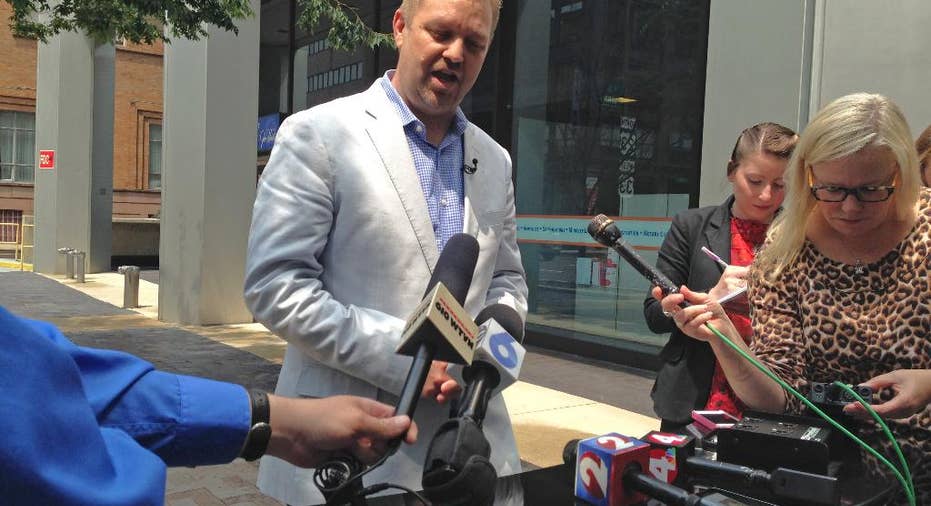Ohio's high court orders rewrite of some ballot wording, lets title stand in pot issue dispute

COLUMBUS, Ohio – The Ohio Supreme Court ruled some ballot language for a proposal to legalize marijuana is misleading and should be rewritten, while allowing the issue's title containing the disputed use of the word "monopoly" to stand.
The proposed constitutional amendment, known as Issue 3, would let people 21 and older buy marijuana for medicinal or personal use. It creates a network of 10 authorized growing locations and a regulatory scheme.
Pro-pot group ResponsibleOhio had challenged the issue's ballot language and title, claiming the wording was misleading. Attorneys for Ohio's elections chief, a vocal opponent of the proposal, had argued the phrasing was fair.
Here are some things to know about the court's ruling Wednesday evening:
___
FOUR PARAGRAPHS SINGLED OUT FOR REWRITE
The decision requires the state's Ballot Board to reconvene and replace four paragraphs about certain requirements for retail stores, the marijuana a person can grow and transport and the potential for additional growing facilities. The court said, "The cumulative effect of these defects in the ballot language is fatal because the ballot language fails to properly identify the substance of the amendment, a failure that misleads voters."
___
SOME OMISSIONS, INACCURACIES IN WORDING
The court said the ballot language inaccurately informs voters that any person age 21 or older can grow and transport more than one-half pound of marijuana plus four flowering marijuana plants. But, the court noted, only those licensed could grow up to 8 ounces of marijuana plus four plants, and they are not permitted to transport it. The court also said the wording omits that retail stores selling marijuana and marijuana-infused products must be licensed and need the approval of voters from the precinct where the store would be located.
___
"MONOPOLY," ''EXCLUSIVE RIGHTS" DESCRIPTIONS STAND
The court allowed the ballot issue's title, "Grants a monopoly for the commercial production and sale of marijuana for recreational and medicinal purposes," to stand in a blow to the backers who had taken issue with the use of "monopoly." ResponsibleOhio argues the proposal doesn't establish a monopoly because more than one marijuana producer is involved in the commercial market. The group also opposed the phrase "endow exclusive rights," which remains in the ballot language. Siding with Secretary of State Jon Husted, the court said the title was not misleading, inaccurate or "persuasive in nature."
___
DECISION IMPACTS WORDING VOTERS WILL SEE
The ruling only affects how the pot initiative will be phrased on ballots when voters decide the issue in the Nov. 3 election. The decision comes as overseas and military absentee ballots are slated to be sent Saturday. Early voting begins Oct. 6. Given the short time remaining to finalize ballots, the court said it would take no further motions in the case. Husted says he will convene the Ballot Board this week.
___
RULING NOT UNANIMOUS
Chief Justice Maureen O'Connor and Justices Paul Pfeifer, Sharon Kennedy, Judith French and Judith Lanzinger all agreed the ballot language needed to be rewritten and the title should not change. Justice William O'Neill said both should be redone, with the "neutral, factually correct language" as approved by the state's attorney general. Justice Terrence O'Donnell dissented, saying the court should leave both as is.
___
Online:
Issue 3 ballot language: http://bit.ly/1HUzj1U



















